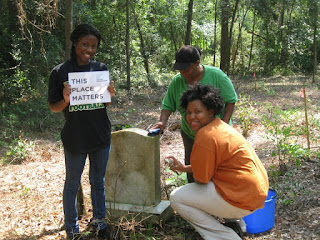Anthropology is most simply put, the study of people and their culture. Anthropologists study human societies and cultures, and their development. Anthropologists are also interested in studying the physical and biological development and evolution of humans. Archaeology is a branch of anthropology that specifically focuses on the study of past humans by looking at the material culture they left behind. When thinking about archaeology your mind probably jumps to ancient civilizations like the Egyptians or the Mayans. However, archaeology is all around us, as is anthropology. After all, we are a product of our environment, society, culture, and our past. Both tend to be thought of as stagnant and a product of an affluent society, meaning that they are often regarded as ancillary or not vital to society. However, an argument can be made that both are extremely important to society today.
This month we will touch on a few specific examples of how studying both our culture and our past have helped with current issues in our society, but first, let us discuss a few broad examples of how archaeology contributes to modern society. Archaeology provides information on groups of people in the past that may not have had a voice of their own or are neglected in historic literature. Information about women, children, indigenous groups and minorities are often missing in historic documentation, however, their material culture remains and thus archaeology can help fill that void. In some instances there is a written record, but it is flawed and full of biases. Archaeologists are often described as “history detectives”. The material culture that archaeologists uncover can provide more accurate accounts of historic events than many written documents, or at the very least fill in gaps that those documents may have neglected. Some cultures did not possess a written language, and thus all that remains is the cultural material they left behind.
 |
| Anthropologists can help doctors understand vaccine hesitancy and help mediate between doctors and patients. (photo courtesy of gavi.org) |
Archaeology provides an improved understanding and insight into human nature and why we do the things we do. I am sure we have all heard someone say that learning from the past will help prevent us from repeating it. While this phrase somewhat simplifies matters, archaeology can provide a deeper understanding of current events. Lessons we learn from the past can help us develop effective solutions for the future. Often, today’s issues have historical roots, and understanding the historic origins can help us more effectively address those issues. Today archaeologists and anthropologists are involved in studying racism, medical issues, homelessness and other pertinent issues facing our society.
 |
| UWF student archaeologists excavate a site located within a suburban neighborhood. (photo courtesy of UWF Anthropology) |
Archaeology also contributes to our economy. Historic and archaeological preservation not only solidify ties to social and national heritage, but also provide opportunities for economic development. If you have ever visited a historic site, a national park, a historic downtown, or a museum you have benefited from the work of anthropologists and archaeologists. In fact, it goes deeper than that. There is a lesser known branch of archaeology called Cultural Resource Management. Roadways or buildings that are constructed using federal or state dollars are assessed by an archaeologist prior to construction to ensure that no significant archaeological sites are destroyed prior to valuable information being gathered. In some instances the sites are preserved, although that is not always possible. However, this branch of archaeology is vital to ensuring that the information those sites contain is not lost forever. These archaeologists are dedicated to documenting every site they encounter to ensure that information is part of our historical record. So, like I said, archaeology is everywhere and is indeed an everyday part of your life. You just didn’t necessarily know it!

No comments:
Post a Comment